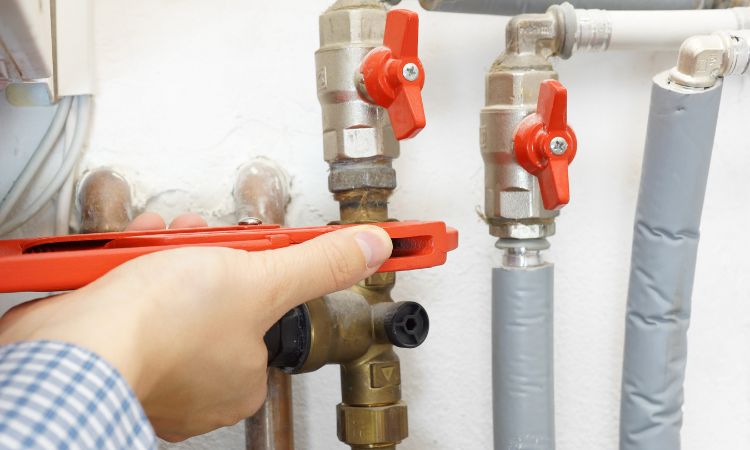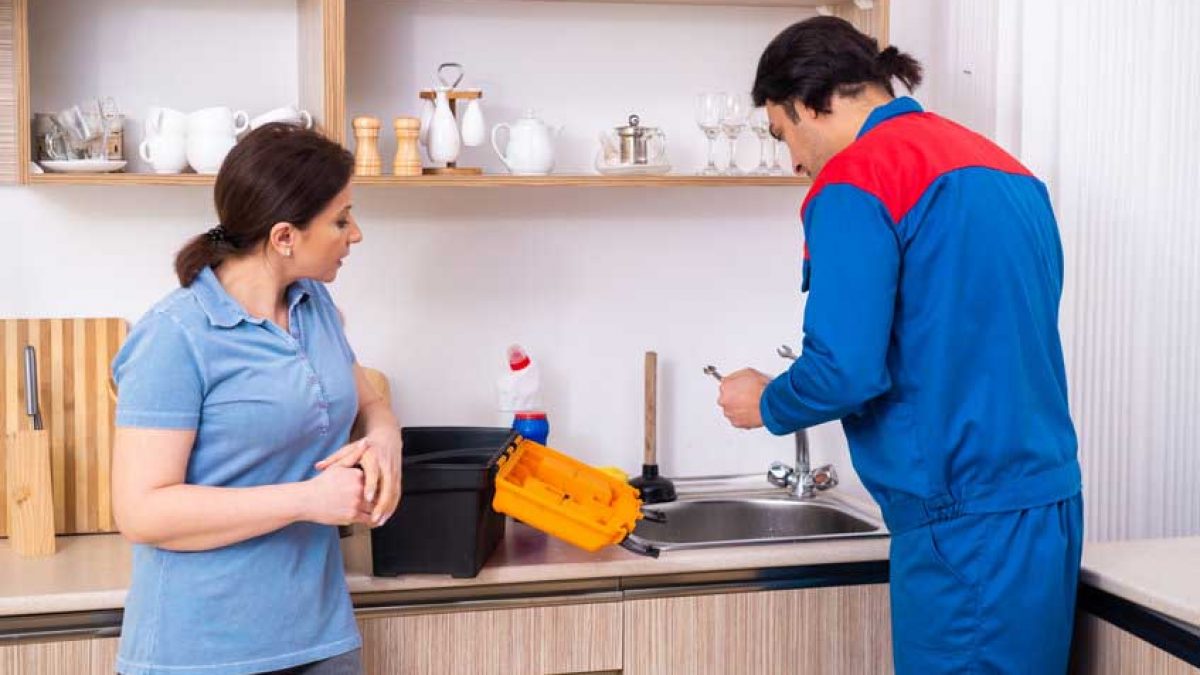Helpful Guidance for Handling Plumbing Issues in Older Homes
Helpful Guidance for Handling Plumbing Issues in Older Homes
Blog Article
They are making several great annotation related to Main Plumbing Issues Found in Old Houses in general in this great article followed below.

Older homes typically include beauty, personality, and background, yet they can additionally bring a host of plumbing concerns. Whether you're managing aging pipelines, low water stress, or leakages, knowing just how to address these usual issues is essential to preserving a safe and practical home. In this guide, we'll check out the regular plumbing difficulties encountered by older homes and offer functional services to keep your pipes in leading form.
Recognizing Usual Plumbing Concerns
Aging Pipes
One of the most typical problems in older homes is aging pipelines. Depending on the era in which your home was developed, the pipes may be made from materials that have weakened over time, such as galvanized steel, cast iron, or even lead. These products can wear away, end up being weak, or establish leaks, bring about water damages and prospective carcinogen.
Water Quality Screening
Older pipelines can affect the quality of your water. Conduct a water top quality test to check for impurities such as lead, corrosion, or various other pollutants that may be introduced by maturing pipelines.
Solutions for Typical Pipes Issues
Replacing Aging Pipelines
If your home has old, weakening pipelines, take into consideration replacing them with contemporary products like copper or PEX. This can be a significant financial investment, yet it will avoid future problems and boost the safety and reliability of your plumbing system.
Repairing Low Water Pressure
To fix low tide pressure, beginning by cleaning or replacing old components and removing mineral buildup in the pipes. If the problem persists, it might be necessary to change areas of corroded pipes.
Fixing and Changing Leaking Pipelines
For little leaks, you can utilize pipe clamps or epoxy putty as a short-term repair. Nonetheless, it's ideal to replace dripping pipes entirely to avoid more damage.
Updating Components
Updating old fixtures to contemporary, water-efficient models can improve your home's pipes performance and reduce water usage. Try to find fixtures with the WaterSense tag for the very best effectiveness.
Dealing with Pipe Rust
If your pipelines are corroded, replacing them with corrosion-resistant materials like copper, PVC, or PEX is the most effective solution. Normal inspections and water high quality upkeep can help prevent even more rust.
Low Tide Stress
If you're experiencing low water stress, it could be as a result of mineral deposits, rust inside the pipelines, or old fixtures that are no more operating efficiently. This can be a significant inconvenience, specifically in areas like showers and sinks.
Dripping Pipes
Leakages are one more regular problem in older homes, usually brought on by corroded or damaged pipelines. Even small leakages can cause significant water damages, mold development, and raised water expenses otherwise resolved promptly.
Outdated Fixtures
Obsolete pipes fixtures such as faucets, toilets, and showerheads not just look old however may additionally be much less effective, susceptible to leaks, or incompatible with contemporary plumbing criteria.
Pipe Corrosion
Rust is an usual issue in older pipelines, particularly those made from galvanized steel or cast iron. Rusty pipes can restrict water circulation, cause staining, and eventually result in leaks or pipe bursts.
Assessing the Problem of Your Plumbing
Examining Visible Pipes
Start by checking any noticeable pipelines in your home, such as those in basements, crawl spaces, or under sinks. Look for indications of deterioration, leaks, or rust, which can indicate underlying concerns.
Checking for Leaks
Check for leaks by checking locations around faucets, commodes, and under sinks. You can likewise monitor your water meter before and after a duration of no water utilize to identify concealed leakages.
When to Call an Expert
While some plumbing concerns can be taken care of with do it yourself options, there are times when it's ideal to call in a specialist. If you're managing major leakages, substantial corrosion, or are unclear regarding the problem of your pipelines, a certified plumbing professional can offer skilled analysis and repair.
Preventive Maintenance Tips
Routine Assessments
On a regular basis inspect your plumbing system for indications of deterioration. Capturing concerns early can protect against costly fixings down the line.
Water Pressure Regulation
Guarantee your water pressure is within the suggested range to avoid worrying your pipes and fixtures. A plumber can set up a stress regulatory authority if needed.
Water Quality Maintenance
Install water filters or conditioners if your water high quality is poor. This can protect your pipelines and fixtures from damage caused by tough water or contaminants.
Aggressive Pipe Replacement
If your home has older pipelines, think about proactive substitute before major problems develop. This can conserve you from emergency repairs and water damage.
Verdict
Handling pipes concerns in older homes requires a mix of caution, preventative maintenance, and timely upgrades. By understanding the typical challenges and understanding when to seek specialist aid, you can guarantee your pipes system stays practical and trusted for several years to come.
Common Plumbing Issues in Older Homes
Pipe corrosion
Pipe corrosion is a common plumbing issue in older homes. Several factors can cause pipes to corrode:
Water: Ironically, water is the number one cause of pipe corrosion. When water seeps into cracks in pipes, it can cause the metal to rust and break down, leading to leaks or even burst pipes.
Oxygen: Oxygen is another significant culprit in pipe corrosion. When oxygen interacts with water, it can cause the metal to oxidize and weaken.
Chemicals: Chemicals such as chlorine and fluoride can also contribute to pipe corrosion. These chemicals can react with the metal in pipes, causing them to break down over time.
Leaky pipes
Pipes that leak is one of the most common plumbing issues plaguing residents of older houses. While a small leak may not be a problem initially, it can lead to significant problems if left unaddressed. In addition, water damage can be very costly to repair and may cause damage to electric fixtures, promote mold growth and cause many other issues.
Worn-out fixtures
Older homes often have worn-out fixtures which may need replacement. Over time, the finishes on fixtures can wear down, exposing the underlying metal to corrosion. This can cause fixtures to leak or even break completely. It s best to have a professional plumbing contractor regularly inspect the fixtures in older homes and replaces them if necessary.
Faulty water heaters
A leaky water heater can cause severe damage to the home as it can be both a flood and fire hazard. Call a plumber immediately if it appears that the water heater might be leaking.
If the heater isn t working correctly, it could be because the pilot has gone out. The pilot light going out may indicate gas supply issues or leaks. It is also worth checking the thermostat to see if it needs to be adjusted.
If the water heater is making strange noises, it could be due to sediment buildup in the tank. Sediment can interfere with the heating elements and cause them to overheat. Overheating can damage the tank and shorten the lifespan of the water heater.
https://www.norfleetfamilyplumbing.com/blog/common-plumbing-issues-in-older-homes

I recently found that blog posting on Plumbing Problems In Old Homes while scouting around the web. You should set aside a second to promote this blog posting if you enjoyed reading it. I enjoy reading our article about Common Plumbing Problems in Older Homes.
Information Report this page